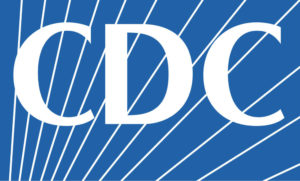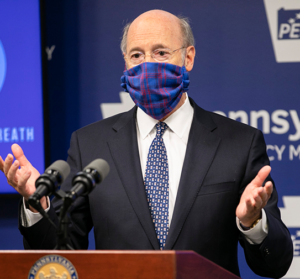MACPAC Issues Recommendations to Congress
The Medicaid and CHIP Payment and Access Commission has submitted its annual report to Congress on Medicaid and the Children’s Health Insurance Program.
 The report includes recommendations for:
The report includes recommendations for:
- improving Medicaid’s responsiveness during economic downturns
- addressing concerns about high rates of maternal morbidity and mortality;
- reexamining Medicaid’s estate recovery policies
- integrating care for people who are dually eligible for Medicaid and Medicare
- improving hospital payment policy for the nation’s safety-net hospitals
MACPAC is a non-partisan legislative branch agency that “provides policy and data analysis and makes recommendations to Congress, the Secretary of the U.S. Department of Health and Human Services, and the states on a wide array of issues affecting Medicaid and the State Children’s Health Insurance Program (CHIP).” Its mandate calls for it to address matters such as Medicaid and CHIP payment, eligibility, enrollment and retention, coverage, access to care, quality of care, and the programs’ interaction with Medicare and the health care system generally.
Because Pennsylvania safety-net hospitals care for so many more Medicaid and CHIP participants than the typical community hospital, MACPAC’s deliberations are especially important to them.
Learn more about MACPAC’s recommendations in its Report to Congress on Medicaid and CHIP.
 The Department of Health has
The Department of Health has  The number of new COVID-19 cases has fallen significantly since November and December but the decline has ended and the daily numbers now generally are higher than they have been in recent weeks.
The number of new COVID-19 cases has fallen significantly since November and December but the decline has ended and the daily numbers now generally are higher than they have been in recent weeks. According to a DHS news release, the RAHCs will “…lead efforts to address social determinants of health, reduce health disparities, and promote equity and value in health care” as part of “…a partnership between the Wolf Administration, Medicaid managed care organizations, hospitals and health systems, and community-based health and social service providers and organizations.”
According to a DHS news release, the RAHCs will “…lead efforts to address social determinants of health, reduce health disparities, and promote equity and value in health care” as part of “…a partnership between the Wolf Administration, Medicaid managed care organizations, hospitals and health systems, and community-based health and social service providers and organizations.” In addition, the DHS news release explains that the RAHC were established with five primary goals:
In addition, the DHS news release explains that the RAHC were established with five primary goals: The moratorium on the two percent sequestration of Medicare payments could be extended under a bill the U.S. House of Representatives may consider this week.
The moratorium on the two percent sequestration of Medicare payments could be extended under a bill the U.S. House of Representatives may consider this week. SNAP has urged Congress to extend the Medicare sequestration delay on a number of occasions, doing so most recently in this
SNAP has urged Congress to extend the Medicare sequestration delay on a number of occasions, doing so most recently in this  Acting Secretary of Health Beam issued an order making March 31 the date by which all vaccine providers should have Phase 1A-eligible Pennsylvanians’ vaccine appointments scheduled. See
Acting Secretary of Health Beam issued an order making March 31 the date by which all vaccine providers should have Phase 1A-eligible Pennsylvanians’ vaccine appointments scheduled. See  Around the State
Around the State Centers for Medicare & Medicaid Services
Centers for Medicare & Medicaid Services Centers for Disease Control and Prevention
Centers for Disease Control and Prevention The number of new COVID-19 cases has fallen significantly since November and December but the decline has leveled off this month.
The number of new COVID-19 cases has fallen significantly since November and December but the decline has leveled off this month. Governor Tom Wolf and the COVID-19 Vaccine Task Force announced that Pennsylvania will use the Johnson & Johnson (Janssen) single-dose COVID-19 vaccine to vaccinate teachers and school staff members. Learn more from
Governor Tom Wolf and the COVID-19 Vaccine Task Force announced that Pennsylvania will use the Johnson & Johnson (Janssen) single-dose COVID-19 vaccine to vaccinate teachers and school staff members. Learn more from  Included in this month’s edition are articles about:
Included in this month’s edition are articles about: RISE PA” – “RISE” is short for “Resource Information and Services Enterprise” – is, according to DHS, a “…collaborative effort between multiple state agencies, counties, and local non-profits and community organizations, health care, and social services providers” that will “…serve as an access point to search and obtain meaningful information to help Pennsylvanians find and access the services they need to achieve overall well-being and improve health outcomes” while serving as a “…care coordination system for providers…and a closed-loop referral system that will report on the outcome of referrals.”
RISE PA” – “RISE” is short for “Resource Information and Services Enterprise” – is, according to DHS, a “…collaborative effort between multiple state agencies, counties, and local non-profits and community organizations, health care, and social services providers” that will “…serve as an access point to search and obtain meaningful information to help Pennsylvanians find and access the services they need to achieve overall well-being and improve health outcomes” while serving as a “…care coordination system for providers…and a closed-loop referral system that will report on the outcome of referrals.” Governor Wolf
Governor Wolf